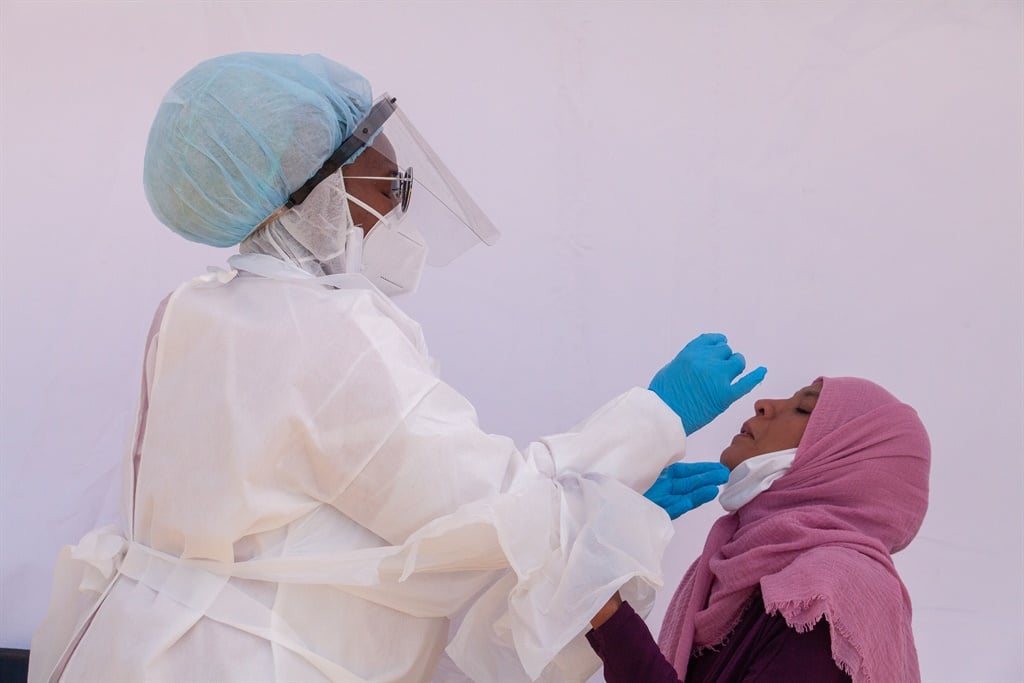


Health workers conduct mass Covid-19 screening and testing at Rose Park in Lenasia.
PHOTO: Papi Morake/Gallo Images
Working on the frontline in a Covid-19 ward in one of the country’s hospitals is not for the faint-hearted, writes one doctor, who asked to remain anonymous.
Working in the Covid-19 wards in our country’s hospitals has been a marathon. It is a test of strength, stamina, but also of emotions as doctors try to treat patients to the best of their ability.
It has also meant a lifestyle change.
Coffee drinkers have stopped drinking coffee, and water intake has decreased, as we are afraid of needing to go to the bathroom while in PPE (personal protective equipment).
Before Covid-19, shift hours were similar or even longer, but you still had the opportunity to eat, drink and answer the call of nature. That’s all changed due to Covid-19. While trying to save PPE, and to reduce the number of changes of PPE, one avoids eating, drinking and going to the toilet during a shift. All things that were previously taken for granted.
Fatigue
Overall, standing in PPE for long hours causes significant fatigue as the N95 respirators are exhausting. With increasing working hours, the possibility of making mistakes also increases.
Machinery and equipment are not the only things needed to fight a pandemic. It is the manpower, too. But staff shortages lead to anxiety. These issues were longstanding, but have now been compounded by Covid-19.
You also have to deal with your many fears, including contracting the illness and the possibility of taking it home to your loved ones. Previously, having a medical aid would have implied a sense of security, but now we see the private sector taking strain as well.
When the alcohol ban was lifted, hospitals saw an increase in the number of patients being admitted.
This has an implication on the extra Covid-19 testing that is being done, and patients that could have self-isolated at home, sometimes require a ventilator after undergoing surgery for a gunshot or a stab wound. This means less ventilators for those affected by complications of the virus.
Constant change
The situation is very fluid and there’s constant change. One can only imagine the stress and fluidity clinical managers and doctors have to deal with as they change plans and adjust rosters, ward allocations and types of patients for different wards as the virus takes hold.
It’s easy to call for the country to return to a Level 5 lockdown, but we need to understand the socioeconomic impacts of a lockdown. Poorer populations are now poorer, which is strongly associated with morbidity and illness.
In the coming weeks, we expect the rise in diagnosis of Covid-19 cases. This means, as a society, we need to work together – to fight it together.
– Submitted to News24 by a doctor who asked to remain anonymous.
Stay healthy and entertained during the national lockdown. Sign up for our Lockdown Living newsletter. Sign up and manage your newsletters in the new News24 app by clicking on the Profile tab

